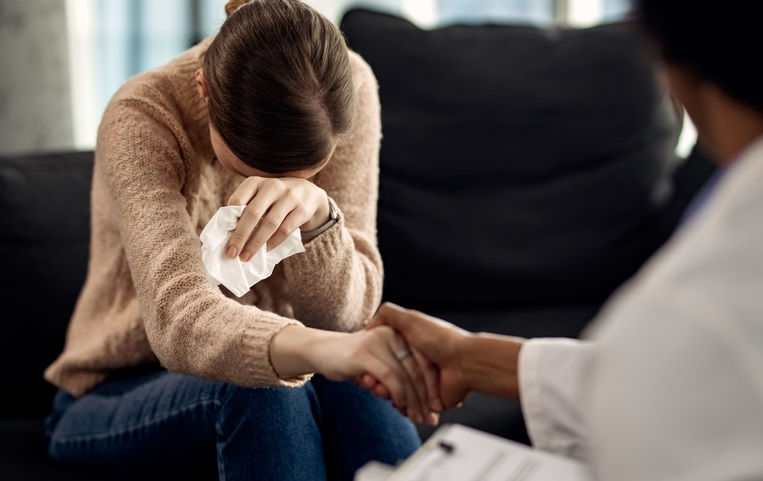TOPLINE:
A self-guided mobile application for cognitive behavioral therapy (CBT) is associated with significant reductions in anxiety in young adults with anxiety disorders after 3 weeks, with continued improvement through week 12, a new randomized clinical trial shows.

METHODOLOGY:
The study included 59 adults aged 18-25 years (mean age, 23 years; 78% women) with anxiety disorders (56% with generalized anxiety disorder; 41% with social anxiety disorder).
Participants received a 6-week CBT program with a self-guided mobile application called Maya and were assigned to one of three incentive strategies to encourage engagement: Loss-framed (lose points for incomplete sessions), gain-framed (earn points for completed sessions), or gain-social support (gain points with added social support from a designated person).
The primary end point was change in anxiety at week 6, measured with the Hamilton Anxiety Rating Scale.
The researchers also evaluated change in anxiety at 3 and 12 weeks, change in anxiety sensitivity, social anxiety symptoms, and engagement and satisfaction with the app.
TAKEAWAY:
Anxiety decreased significantly from baseline at week 3, 6, and 12 (mean differences, −3.20, −5.64, and −5.67, respectively; all P < .001), with similar reductions in anxiety among the three incentive conditions.
Use of the CBT app was also associated with significant reductions in anxiety sensitivity and social anxiety symptoms over time, with moderate to large effect sizes.
98% of participants completed the 6-week assessment and 93% the 12-week follow-up. On average, the participants completed 10.8 of 12 sessions and 64% completed all sessions.
The participants reported high satisfaction with the app across all time points, with no significant differences based on time or incentive condition.
IN PRACTICE:
"We hear a lot about the negative impact of technology use on mental health in this age group," senior study author Faith M. Gunning said in a press release. "But the ubiquitous use of cell phones for information may provide a way of addressing anxiety for some people who, even if they have access to mental health providers, may not go. If the app helps reduce symptoms, they may then be able to take the next step of seeing a mental health professional when needed."
SOURCE:
The study was led by Jennifer N. Bress, PhD, Department of Psychiatry, Weill Cornell Medicine, New York City. It was published online on August 20 in JAMA Network Open.
LIMITATIONS:
This study lacked a control group and the unbalanced allocation of participants to the three incentive groups due to the COVID-19 pandemic may have influenced the results. The study sample, which predominantly consisted of female and college-educated participants, may not have accurately represented the broader population of young adults with anxiety.
DISCLOSURES:
This study was funded by the NewYork-Presbyterian Center for Youth Mental Health, the Khoury Foundation, the Paul and Jenna Segal Family Foundation, the Saks Fifth Avenue Foundation, Mary and Jonathan Rather, Weill Cornell Medicine, the Pritzker Neuropsychiatric Disorders Research Consortium, and the National Institutes of Health. Some authors reported obtaining grants, receiving personal fees, serving on speaker's bureaus, and having other ties with multiple pharmaceutical companies and institutions. Full disclosures are available in the original article.
Note: This article originally appeared on Medscape.













Comments